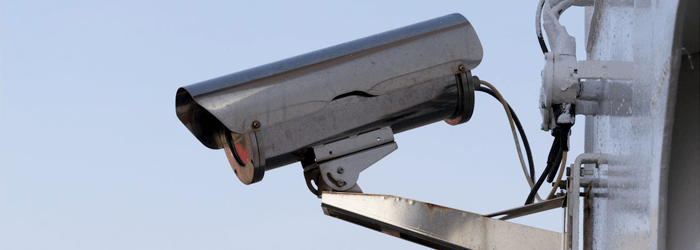Are VPNs Legal & Is Using a VPN Legal?

We’ll be discussing what the situation is in countries where VPNs are illegal, and whether or not VPNs are legal in countries like the US, the UK, and Japan (in case you’d like to know about other specific countries, feel free to message us about it).
Table of contents
Disclaimer. Please understand that the information we present in this article is the result of our own research. We are not lawyers, so we can’t offer a guarantee that everything discussed on this topic is 100% true all the time. For the best results, we recommend consulting with your own lawyer about VPN legality in your country if you are concerned about this.
Is VPN Illegal or Is It Okay to Use It?
The short answer to the question is “Yes, using a VPN is perfectly legal.” Unless you reside in a country where VPNs have been specifically outlawed (something we will discuss below), there is nothing to worry about.
Still, please note that while VPN use in most countries it legal, it is illegal to use a VPN to commit illegal acts. What constitutes illegal acts depends on the laws of your country, but it usually includes things like fraud, identity theft, stalking, child pornography, and – sometimes – file-sharing.
Why Do Some Countries Outlaw VPNs?
It’s pretty hard to answer this question without making speculations, but – overall – it all comes down to two scenarios:
- People are using VPN technology to engage in criminal activities, and governments are trying to fight back by restricting access to VPN services.
- Governments, surveillance agencies, and the authorities are afraid that people can get free access to information from censored websites – information that goes against their narrative. So, they ban VPN usage to stem the tide of online rights and freedom.
Countries Where VPN Is Illegal
“Wait, is it illegal to use a VPN in some countries?”
Unfortunately, it is. Not many countries have taken legal action against VPN usage, but the few that have are still worth mentioning.

Before we get to that, though, you need to understand one thing – some countries might enact laws against VPN use, but that doesn’t really stop people in said countries from using VPNs.
A lot of the time, the laws are pretty vague and have loopholes online users can use to their advantage. Of course, in extreme cases, VPN usage is strictly illegal and fully banned.
China
China is well-known for its harsh stance against Internet freedom. The government threatened to ban VPNs many times, and even forced Apple to remove VPN apps from the Chinese app store. What’s more, back in February 2018, the government announced it will start blocking non-approved VPN apps in March.
Despite that, many Internet users in China still managed to use VPNs on the web.
So, what’s going on – are VPNs legal in China or not?
Well, VPN legality in China is a very gray area. A lot of people like to talk about how using a VPN in China is completely illegal, but that’s not really the truth. What the Chinese government actually deems to be illegal is setting up and running your own private VPN – which can be penalized with up to 5 years in prison or some huge fines.
It’s also generally considered illegal to use a VPN from a Chinese-based provider that isn’t approved by the government, and for a business in the country to use VPNs without getting government clearance first.
However, if you just use a VPN that’s not based in China (like CactusVPN), it’s not really illegal. Why? Because Chinese laws don’t apply to offshore companies, so they don’t have to comply with them.
Of course, we do need to mention that there are regional differences in laws in China. For instance, while using a VPN in most parts of the country could be legal, it might be illegal to do so in Chongqing where the local authorities decided to punish people who bypass the Great Firewall of China (either by accessing international networks privately or through “illegal channels”) by fining them up to $2,178.
Overall, if you use a VPN in China, the worst case scenario generally means you might be asked to remove the VPN apps from your device if you’re caught by the authorities, or that your hotel might kick you off the WiFi if you connect to a VPN server. Care should still be taken if you know you are in a region of China where VPN usage can be fined, though.
Russia
Like China, Russia has a complicated approach to how you can use VPNs. Back in 2017, the government announced a new law that was widely portrayed as being a ban on VPN services in Russia. The reality was a bit different, though – the law was meant to restrict proxy services (like VPNs) that help online users access banned Internet content, not to outright ban the use of VPNs.
The Russian government actually had their eyes on VPN service providers based in Russia, not VPN users, at first. The authorities intended to “convince” said providers to enforce the government’s online censorship blacklist – essentially blocking access to various websites for their users.
If VPN providers based in Russia refuse to comply, they’ll be fined up to $4,850. Also, if you run your own VPN and let other people use it, you also risk being fined up to $480. You can also be fined up to $80 if you post or promote any information or links on the Internet about VPNs. If you’re a functionary and do that in your company, you can get fined up to $800.
So, while there’s no actual talk of doing prison time for doing VPN-related things like that, since you or a VPN provider risks fines, it’s safe to consider all the actions above illegal in Russia.
All in all, you can still use a VPN in Russia since it’s not illegal to do so. Just be careful with what you say about VPNs online.
Of course, if you can’t access VPN services in the country because the websites are blocked, and can only use a Russia-based VPN provider that shares your data with the government, that kind of defeats the purpose of using a VPN.
Still, according to FlashRouters, the VPN ban hasn’t really been enforced.
Iran
Iran is pretty well-known for how much it likes to censor the Internet, and it also started blocking VPNs back in 2013. While using VPNs is technically illegal in the country, the laws don’t really seem to be enforced. Average online users regularly use VPNs to bypass government censorship, and even Iranian politicians do the same.
There have been claims on the Internet that you can get jail time if you are caught using a VPN, but we were unable to find any credible sources confirming that.
The United Arab Emirates
Internet censorship is the norm in the UAE, and using a VPN can be technically considered illegal given the country’s laws. After all, the UAE’s Cyber Crime Law clearly states the following:
“A punishment of temporary imprisonment and a fine of not less than AED 500,000 and not more than AED 2,000,000, or either of these two penalties, shall be imposed on whoever uses a fraudulent computer network protocol address by using a false address or a third-party address or by any other means for the purpose of committing a crime or preventing its discovery.
Any person that circumvents the protocol address of the internet by using a delusive address or an address belonging to others or by any other means for the purpose of committing a crime or preventing its discovery shall be punished by imprisonment and a fine not less than (AED 150.000) and not exceeding (AED 500.000) or by any of these punishments.”
So, you can get both prison time and a fine of up to half a million dollars if you are caught using a VPN. Of course, the law does state that the IP address you use to hide your digital footprints has to be “fraudulent,” and that you have to use a VPN for the purpose of committing a “crime” or preventing its discovery in order for the penalties to apply.
Also, if the VPN is used for “legitimate” purposes, using it does not constitute a crime.
See what the problem is? The wording is very vague and easy to interpret. So, while using a VPN might not technically be illegal in the UAE, if the authorities catch you doing it and decide it is illegal, then it is. Please keep in mind that VoIP calls, accessing pronographic content, and anti-government websites constitute crimes in the UAE.
Oman
Since 2010, using VPNs is illegal in Oman for individuals. If you are caught using one, you risk a fine of up to $1,300. Companies can use VPNs but only if they have a permit for it. Otherwise, they get fined around $2,600. Failure to pay the fine can result in imprisonment.
The TRA (Oman’s Telecom Regulation Authority) used a very broad definition for VPNs, meaning the authorities can abuse the law and prosecute whoever they want.
Bottom line – you can use a VPN in Oman as an individual if the VPN service isn’t banned by the country, but it’s very risky to do so. To our knowledge, there have been no publicized cases of Omani online users getting sentenced to jail or getting huge fines for using VPNs.
Turkey
Turkey has been blocking VPN services since 2016. The ban has been enforced mostly to cut access to social media websites and other channels where anti-government “propaganda” can easily spread.
Despite the fact that BTK (the Turkish Telecommunications Authority) claimed to have fully blocked access to VPNs in 2018, many Turkish online users can still use VPNs. Give how the government views VPNs, it’s safe to say they are “illegal,” but we haven’t found any proof that you can be penalized if you are caught using a VPN.
Iraq
The country started banning VPNs back in 2014. The government used the pretext of fighting ISIS and their online manipulation to outlaw social media platforms, chat apps, and VPNs. This affects all people in Iraq, and it’s pretty safe to say – given the context – that if you’re caught using a VPN, you might be prosecuted by the authorities since they can easily accuse you of being a “terrorist.”
Turkmenistan
VPNs are not legal in Turkmenistan since the government does not want people to access foreign media. Any attempts to use proxies and VPNs are blocked, and Internet users who are caught using VPNs are allegedly intimidated by the Ministry of National Security.
Belarus
Online censorship is pretty common in Belarus, and the country even banned Tor back in 2015. The government also banned VPNs since it targeted all “anonymising Internet technologies.”
Overall, VPN usage is illegal in Belarus, but online users in the country still find ways to bypass those restrictions. Allegedly, if you’re caught using a VPN, you might get a fine.
North Korea
Finding out accurate data about Internet freedom and rights in North Korea is extremely difficult because of the country’s heavy censorship of almost all information. Even overseas North Korean workers and diplomats are forbidden from accessing the web from their smartphones.
It’s safe to say that using VPNs in North Korea is illegal – but only for North Koreans themselves. Allegedly, if you are a tourist, you get to enjoy access to the web and VPN services. In a way, it makes sense seeing as how North Korea makes a lot of money off of tourism.
Uganda
The Ugandan government has started pressuring national telecoms to block VPN services starting July 2018. Apparently, they’re doing that because people in Uganda are using VPNs to bypass the daily social media tax they need to pay to access social media platforms.
Not all VPN services have been successfully blocked yet, and there are no actual penalties in place regarding VPN usage – for now, at least. After all, the Executive Director of the UCC (Uganda Communications Commision) said the following:
“It’s a government decision it’s not a UCC decision. People should pay tax. It’s a law, if the government says pay tax, you should pay.”
So while there are no exact laws prohibiting the use and running of VPN services in Uganda, the way the authorities are treating this topic leads us to believe they might start taking legal action against VPN users in the future.
Egypt
Back in 2017, the Egyptian government has started forcing national ISPs to block VPN services. Still, many people in Egypt continue to use VPN services to circumvent online censorship in the country.
As for whether using VPNs is legal or not, it’s difficult to say – mostly because the law regarding banned websites is very vague. Overall, if you access banned online content in Egypt you risk at least one year of prison time and a fine. However, the law doesn’t clearly state if accessing banned websites with a VPN is illegal. But given the fact that Egypt is blocking access to VPNs, and that the government has made the law intentionally ambiguous in that regard, it’s safe to say the authorities can abuse that loophole if they want to prosecute VPN users.
Looking for a Reliable VPN Service?
No matter where you are in the world, if you need a VPN you can rely on, CactusVPN has got your back – we offer 30+ high-speed worldwide servers with unlimited bandwidth.
What’s more, you can choose to connect to the web using high-security VPN protocols (like OpenVPN or SoftEther). Plus, your online traffic and data will be surveillance-free thanks to our high-end AES encryption.
And don’t worry – we don’t keep any logs about your online activities.
We offer a Smart DNS service as well that can help you unblock over 300 geo-restricted websites from countries like the US, The UK, Germany, Poland, Canada, France, Sweden, Switzerland, Australia.
Special Deal! Get CactusVPN for $3.5/mo!
And once you do become a CactusVPN customer, we’ll still have your back with a 30-day money-back guarantee.
Is VPN Legal in the Rest of the World?
VPNs are legal in most countries. We’ll quickly cover the countries our users asked us the most about. In case you’d like to know about how a country tackles VPN legality, feel free to message us about it.

Are VPNs Legal in USA?
While the US doesn’t have the best track record of respecting Internet rights and privacy, using a VPN is completely legal in the country – as long as you don’t use it to break the law, of course.
Are VPNs Legal in the UK?
Yes, using a VPN in the UK is perfectly legal. Though, do keep in mind that if you choose a VPN provider based in the UK, they are forced to comply with the law and share your data with the authorities when they request it.
Are VPNs Legal in the EU?
Basically, it depends on each member state and its legal approach to VPNs. However, the EU as a whole has gone to great lengths to protect online rights (from taking a harsher stance on geo-blocking to protecting user privacy with the GDPR), so it’s pretty safe to assume that using a VPN in the EU is legal – provided it’s not used for illegal purposes, naturally.
Are VPNs Legal in Australia?
Even though Australia passed laws that allow it to censor certain websites, using a VPN is legal in Australia – yes, even if you want to use it to access the websites that are blocked (as long as we’re not talking about websites that contain highly illegal content).
Are VPNS Legal in Canada?
Back in 2015, David Purdy of Rogers Communications actually called on the Canadian government to shut down VPNs. Luckily, no actions were taken (yet), so using a VPN is currently legal in Canada.
Are VPNs Legal in Brazil?
Even though Brazilian judges ordered Brazilian ISPs to block WhatsApp back in 2016 for 72 hours, using a VPN is still perfectly legal in the country.
Are VPNs Legal in Japan?
While Japan is very strict on file-sharing, and has serious penalties for it, using a VPN is not considered a criminal offense in the country.
Is Using a VPN Legal? The Bottom Line
In most countries, VPN usage is completely legal as long as you don’t use such services to perform illegal activities (depending on national laws, that can vary from credit card fraud to file-sharing).
However, there are countries where VPN use is illegal (North Korea, Oman, the UAE, Belarus, etc.), but where online users still find ways to use VPNs to bypass government censorship (usually at their own risk).
 What VPN Features Are Normally a Must-Have for a VPN Service?
What VPN Features Are Normally a Must-Have for a VPN Service?
 What Is a VPN Server & How Does a VPN Server Work?
What Is a VPN Server & How Does a VPN Server Work?
